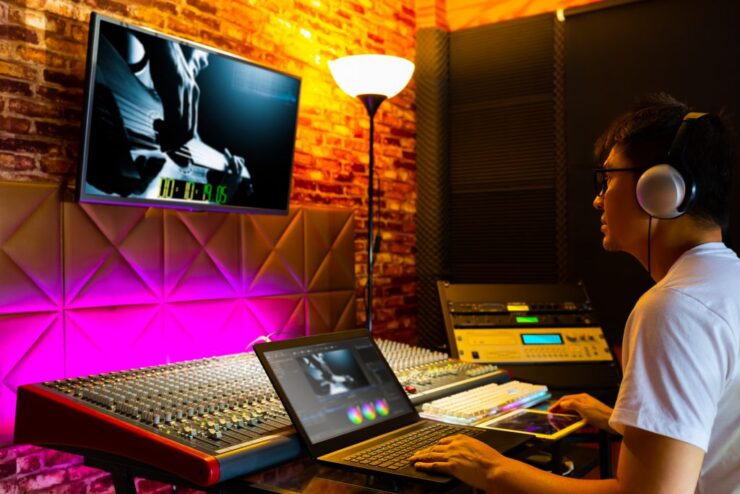Sound designers are responsible for all the aural elements of a particular sound production project. They must single-handedly prepare sound effects, edits shots, and synchronize the dialogues to make it look natural but sometimes they coordinate with technical sound designers, audio recording engineers, musicologists, and many other experts within this domain to complete a creative project.
Different certification programs in sound design focus on training students on all the latest advanced types of equipment to keep up with the industry trends. These sound design programs require students to have pursued their full-time post-secondary studies with a minimum requirement of grade points that may vary with the college or university that interests you the most. Here’s something to remember, if sound designing is something that inspires you to pursue a career within this domain:
- Educational background: You don’t have to pursue a full-time degree or a post-doctoral program to be a part of this industry. A clearly defined certification course focusing on different aspects of sound design is sufficient to get started within the sound industry. The basic concepts of audio engineering, sound effects, mixing, theater, live shows, music production, sound equipment, and sound knowledge of music combinations are required to succeed as a sound designer.
- Technical skills: You must develop expertise in using different software and recording programs like QLab, pro-tools, GarageBand, Logic, and other advanced techniques like plug-ins. You must be aware of tolls that are required in almost every sound design project including the speakers, amplifiers, microphones, graphic equalizers, and mixing boards. These are some of the basic requirements as a professional aspiring to pursue a long-term career as a sound designer.
- Practical knowledge of the sound industry: Grasp the knowledge of different genres of music so that you can differentiate between two sounds so that you can come up with an innovative and advanced form of it. Try to get acquainted with all sound libraries as it will help you to look beyond the existing sound effects and develop advanced ones. Focus on the benchmark examples within the industry and incorporate them into your creative techniques.
- Communication: As a sound designer, you must collaborate with different teams and experts from diverse domains which require excellent communication skills to come up with ideas, creative solutions, and to create an effective professional relationship.
- Networking: It is one of the must-have skills for professionals in the sound industry so that they can learn from experts and consult them if they encounter any kind of issues while working on a project.
If you are aiming for a career as a sound designer, then you must focus on all the aforementioned factors starting by signing up for a certification program in sound designing. This industry demands professionals with robust knowledge of music, technical skills, and practical training to challenge the existing norms and practices within this domain. So, sign up for the sound designing course now!




























